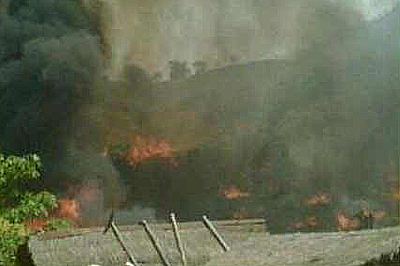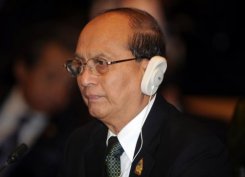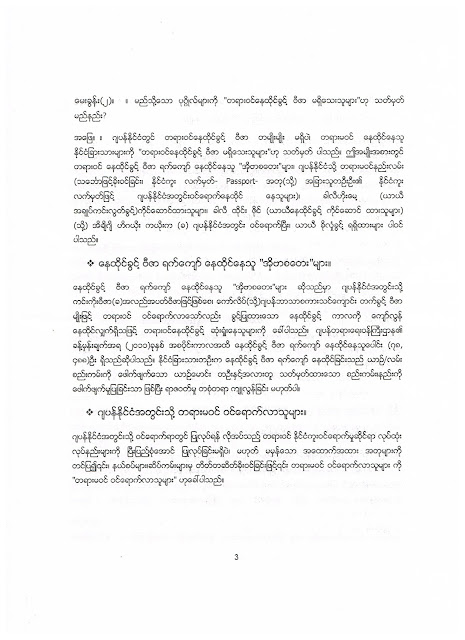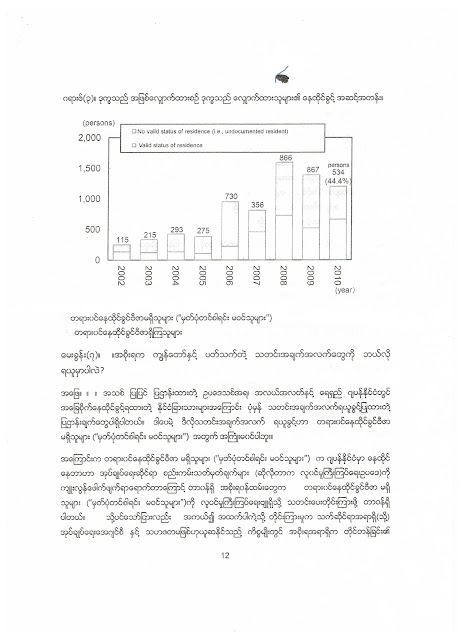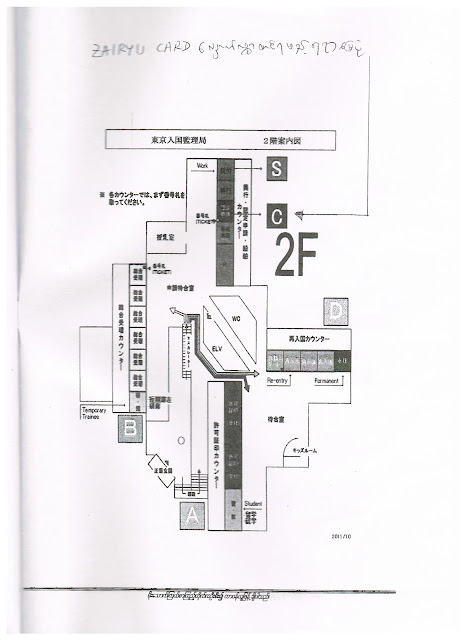Much is riding on the outcome of the forthcoming polls in Myanmar, and more particularly the way in which these by-elections are conducted.
The initial signs are not encouraging. The election is going to be a real test of strength between the liberals who support the president's reform agenda, and the hardliners grouped around Vice President Tin Aung Myint Oo, who seem intent on derailing the reform process, despite publicly declaring their support for democratic reform.
Campaigning for the forthcoming elections is already in full swing. Myanmar's pro-democracy leader Aung San Suu Kyi, who is contesting a seat in the parliamentary polls scheduled for April 1, has already made several forays into the countryside, including touring parts of the constituency on the outskirts of Yangon in which she is running.
Tens of thousands of supporters and well-wishers have flocked her route on these occasions to glimpse the iconic figure, who has spent much of the last 20 years under house arrest, often in virtual solidary confinement. Everywhere her reception has been the same, adoring crowds yelling their support for her. "She's been treated like a pop star," said freelance journalist Min Thu, who has been following her entourage. "The excitement is overwhelming as people want to see her, wave to her, and for those close enough, to touch her."
Although only a relatively small proportion of seats is being contested in the by-elections _ to replace MPs who have taken up ministerial posts _ the results will have a significant effect on the country's fragile reform process.
"Aung San Suu Kyi's decision to run for parliament is an extremely important move for the future of the country," said Sean Turnell, a Myanmar specialist at Macquarie University in Australia who recently visited the country. "She is uniquely placed to drive reform forward and bring on board a substantial constituency to help maintain that momentum." The leader of the National League for Democracy (NLD) is contesting from Kawhmu, a poor rural district on the southern outskirts of Yangon, the country's largest city and the Nobel Peace laureate's hometown.
Her party is fielding candidates in almost all the 48 seats that are vacant _ 40 in the lower house, six in the upper chamber and two in provisional assemblies. While this represents less than 15% of the seats in the national assembly _ 440 seats in the lower house and 224 in the upper house _ the results are less important than the way in which these by-elections are conducted.
"We hope the government keeps its word and allows a free and fair election," said NLD spokesman Nyan Win.
The world's eyes are now on these by-elections, something the Myanmar government is painfully aware of.
US Secretary of State Hilary Clinton stressed the need for these by-elections to be free and fair when she met government leaders last December in the new capital Nay Pyi Dtaw. She promised the speaker of the lower house, Shwe Mann, that this was a chance for Washington to seriously consider reducing sanctions against the country.
Since then the mantra has been constantly repeated _ including by United Nations human rights envoy Tomas Ojea Quintana on his mission last month, and last week by the German development minister and a European Commissioner: that any consideration of rolling back sanctions was dependent on the by-elections being free and fair.
There is no doubt that the liberals in the government want these elections to be as free and fair as possible _ it is essential for their long-term game plan. President Thein Sein and house speaker Shwe Mann met with the chairman of the election commissioner Tin Aye a few months ago _ before Mrs Suu Kyi and the NLD agreed to contest _ and agreed that the by-elections would be free and fair, even if it meant the ruling Union Solidarity and Development Party (USDP) would take a severe drubbing in the polls.
"We have taken the necessary measures so that the upcoming by-elections will be free, fair and credible," Shwe Mann told EU development commissioner Andris Piebalgs earlier this week. This is nevertheless going to be difficult, because it is the USDP leaders, who are mainly hardliners, who will be campaigning in the election, even though Shwe Mann is nominally the head of the party.
So far the signs are ominous and there is growing evidence that the hardliners are trying to scupper the NLD's campaign. Some senior USDP leaders have instructed government officials to block the NLD's electoral campaign in any way they can. This was already evident a few weeks ago when Mrs Suu Kyi wanted to speak to her supporters in Mandalay. The EC gave her permission to speak but the party was refused approval to use the main stadium there to address the rally.
The signs that this is going to be a dirty campaign were even evident before her first trip to the Dawei industrial zone area in southern Myanmar. In a clear preview of things to come, the former fisheries minister and USDP central executive member, Maung Maung Thein, warned residents in the area last month that if they did not vote for the USDP they would lose their jobs.
More ominously though, he instructed the local officials to make sure they manipulated the vote in same way that the November polls were rigged, senior military sources disclosed.
Maung Maung Thein has considerable business interests in the area (especially in the fishing industry), and he has also been accused of colossal corruption.
All along the main road in Mrs Suu Kyi's constituency are big colourful billboards proclaiming to voters that the roads were being repaired by the USDP. In many places throughout the country the USDP is taking credit for infrastructure projects, medical centres and schools built by the government. This may not sway voters from electing Mrs Suu Kyi, but may have greater influence in other parts of the country.
The pro-democracy leader is not anxious to cry foul, at least just yet. "We have certainly come across a few hitches in the last couple of weeks with regards the campaign of the NLD," she told reporters recently. "We hope that these will be sorted out because free and fair elections depend on how a campaign goes, not just how people are allowed to cast their vote on the day itself."
"The problem is access to resources, and when so much is at stake there will be setbacks," said Aung Naing Oo, a former activist and now development specialist who has just returned to Myanmar for the first time in 20 years. "There will always obstacles to democratic change in the short term, especially the danger of vote-buying," he said.
The problem is that at the local level government officials' allegiances will be to the local mafia and cronies. And they are likely to be swayed by the local party bosses, rather than the president's edicts.
Even if the NLD wins most of the seats it is contesting, it will be a minority party in parliament. More than 70% of the seats are already held by the pro-military MPs who belong to the USDP, including a quarter of the MPs who are serving soldiers directly nominated by the army chief.
"Even if she is the leader of a minority party in parliament, Aung San Suu Kyi will be a potent symbol for national reconciliation and democratic change," said Nyo Myint, a political analyst.
Larry Jagan is a former BBC regional correspondent based in Bangkok who extensively covers Myanmar issues.



